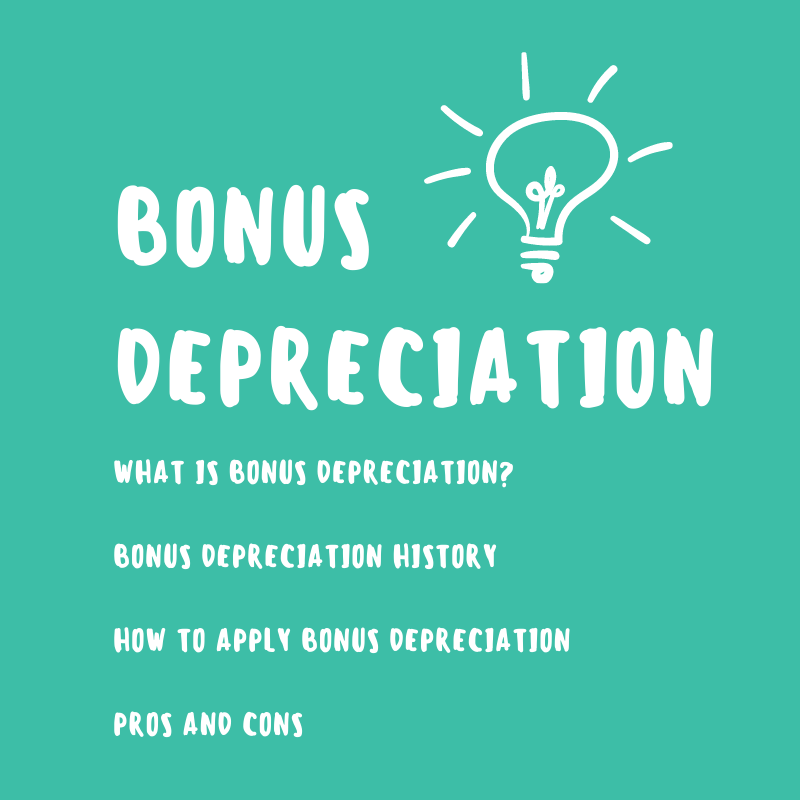
How to Take Advantage of Bonus Depreciation on Real Estate in 2021
What is bonus depreciation?
Anything with a bonus in the name has to be good, right? Despite sounding a little too good to be true, bonus depreciation is a tax incentive that has existed for nearly 20 years. The details of bonus depreciation tend to change along with the tax law, but since the Tax Cuts and Jobs Act passed in 2017, this popular tax incentive is more beneficial than ever.
Simply put, bonus depreciation is a tax incentive that allows taxpayers to deduct the cost of an asset sooner than they would otherwise. Without bonus depreciation, a taxpayer can only write off the cost of an asset over its legally-defined “recovery period.” Bonus depreciation generally applies to any personal property with a recovery period of less than 20 years. Many depreciable assets such as cars, software, and certain building components are eligible for bonus depreciation.
One of the major benefits of a cost segregation study is that it helps to identify building components that are eligible for bonus depreciation
Bonus Depreciation History
When bonus depreciation was first introduced in 2002 through the Job Creation and Worker Assistance Act, it allowed taxpayers to deduct 30 percent of the cost of certain property with a recovery period of 20 years or less. This tax incentive was expanded under a 2003 law that increased the bonus depreciation to 50 percent. However, this increased bonus depreciation only applied to property placed in service between May 5, 2003 and January 1, 2005. The 50 percent bonus depreciation was re-introduced in the 2008 Economic Stimulus Act for property acquired and placed in service in 2008
Subsequent legislation extended or expanded bonus depreciation throughout the 2010s. One of the most significant expansions to bonus depreciation came through the 2017 Tax Cuts and Jobs Act, which not only increased bonus depreciation to 100 percent, but also expanded the types of property that qualified for bonus. Prior to the TCJA, bonus depreciation was generally applicable only to new construction or to property that had been placed in service for the first time. As a result of expanded bonus depreciation under the TCJA, taxpayers can now expense 100% of qualifying property when they acquire an existing building.
The 100 percent bonus depreciation will begin to phase out in 2023. The bonus depreciation percentage in 2023 will be 80 percent. The percentage will continue to phase down by 20 percent every year, until bonus depreciation is completely eliminated after 2026.
How do I make sure I get bonus depreciation?
If you just purchased a building, you can apply bonus depreciation by making the appropriate election on your Form 4562 when you file your taxes. Keep in mind that commercial buildings have a recovery period of 39 years and that bonus depreciation only applies to assets with a recovery period of 20 years or less. To take full advantage of bonus depreciation on real estate, you need to identify which building components qualify. An engineering-based cost segregation study is a cost-effective method of identifying building components that are eligible for bonus depreciation.
If you have properties that went into service prior to this year, you can still take advantage of bonus depreciation by filing a Form 3115 with your tax return.
Pros and Cons of Bonus Depreciation
The benefit of bonus depreciation is that it allows taxpayers to write off the entire value of certain assets in the first year of service, rather than having to spread those deductions over several years. The large deductions that bonus depreciation generates can sometimes result in a net operating loss (NOL). A loss can be carried forward to offset income in the next tax year. Under the CARES Act, losses arising in tax year 2020 can also be carried back — used to offset income from previous years — which can result in a tax refund. However, losses arising in tax year 2021 and later cannot be carried back under the CARES Act.
If you are a business owner considering whether or not to apply bonus depreciation, you should consult with your tax and financial team to determine whether bonus depreciation will be beneficial. You can choose not to apply bonus depreciation to an eligible asset.
Another consideration is that if you claim bonus depreciation on an asset, you may be subject to depreciation recapture when the asset is sold. You should consider the impact of recapture when deciding whether or not to take advantage of bonus depreciation.
For a no-cost evaluation of your building to determine the tax-saving impact of bonus depreciation, request a cost segregation analysis through our website or call our office at (225) 291-0046.
This page is intended for general information only, and is not meant to constitute tax advice.
Updated August 27, 2021


